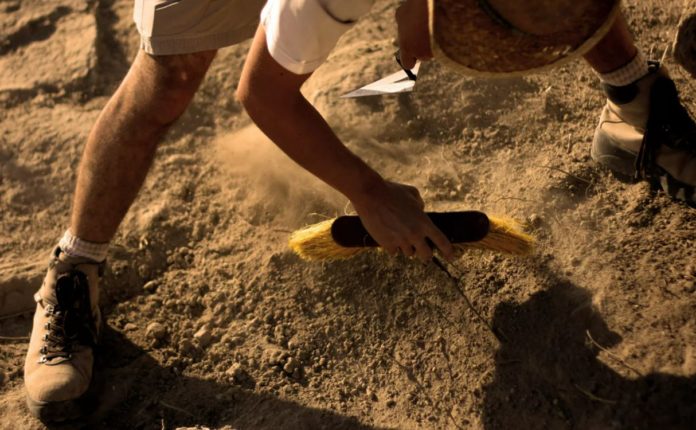The huge settlement is well preserved. Historians claim that the archaeological layers remained intact.
An archaeological mission headed by the former Minister of Archeology of Egypt Zahi Hawass, in the sands of southern Egypt, archaeologists have discovered a lost city about 3.4 thousand years old. Experts claim that it was founded by Pharaoh Amenhotep III.
- Does This Mean We Stopped Being Animal and Started Being Human Due to ‘Copy Paste’ Errors?
- The One Lifestyle Choice That Could Reduce Your Heart Disease Risk By More Than 22%
- Aging: This Is What Happens Inside Your Body Right After Exercise
- Immune-Boosting Drink that Mimics Fasting to Reduce Fat – Scientists ‘Were Surprised’ By New Findings
- Gun Violence in America: What They Don’t Talk About at the Debate
Pharaoh lived in the XIV century BC. Historians say that the city developed before the reign of Pharaoh Tutankhamun.
The city, which was called “The Rise of Aten”, was the largest administrative and industrial settlement of Egypt on the western bank of the Nile in Luxor.
Even in those days the city was divided into streets, and houses reached a height of three meters. It is well preserved, the walls of the houses remained almost intact, and many of the rooms were filled with utensils, as if the residents had simply left, leaving everything in their place, said the head of the expedition Zaha Hawass.
The streets of the city are surrounded by houses, the height of the walls reaches three meters. Egyptologists have found a bakery and a cooking area with ovens and pottery.
A large number of casting molds for making amulets and decorations, as well as tools for spinning and weaving, show that the city made decorations for temples and Tombs.
Zahi Hawass anuncia el descubrimiento de la 'Ciudad Perdida' en Luxor.
— Ojo de Horus ???? (@EgiptoAlDia) April 8, 2021
La ciudad data del reinado de Amenhotep III (1390-1352 a.C.)y siguió usándose en tiempos de Tutankamon y Ay. Y es descrita como la ciudad más grande jamás encontrada en Egipto. pic.twitter.com/DDToqQN1L6
One of the most recent finds of a vessel containing 2 gallons of dried or boiled meat (about 10 kg), has a valuable inscription: Year 37, dressed meat for the third Heb Sed festival from the slaughterhouse of the stockyard of Kha made by the butcher luwy.
"Las calles de la ciudad están flanqueadas por casas, cuyas paredes tienen hasta 3 metros de altura. Podemos revelar que la ciudad se extiende hacia el oeste, hasta la famosa Deir el-Medina", afirma Hawass. pic.twitter.com/2lzt5YO5wF
— Ojo de Horus ???? (@EgiptoAlDia) April 8, 2021
To the north of the settlement a large cemetery was uncovered, the extent of which has yet to be determined.
- Does This Mean We Stopped Being Animal and Started Being Human Due to ‘Copy Paste’ Errors?
- The One Lifestyle Choice That Could Reduce Your Heart Disease Risk By More Than 22%
- Aging: This Is What Happens Inside Your Body Right After Exercise
- Immune-Boosting Drink that Mimics Fasting to Reduce Fat – Scientists ‘Were Surprised’ By New Findings
- Gun Violence in America: What They Don’t Talk About at the Debate
Lo que tenían ante ellos era una gran ciudad en muy buen estado de conservación, pues las capas arqueológicas permanecían intactas con diversos objetos y utensilios utilizados en la vida cotidiana de los egipcios. pic.twitter.com/rboyzszhHR
— Ojo de Horus ???? (@EgiptoAlDia) April 8, 2021
So far, the mission has discovered a group of rock-cut tombs of different sizes that can be reached through stairs carved into the rock. A common feature of tomb construction in the Valley of the Kings and in the Valley of the Nobles.
Respecto a la segunda área hallada, es la denominada zona administrativo y residencial. Con residencias más grandes, muros y una única entrada. pic.twitter.com/oRM4yAdGhA
— Ojo de Horus ???? (@EgiptoAlDia) April 8, 2021
According to Betsy Brian, professor of Egyptology at the Johns Hopkins University in Baltimore, in the USA, the discovery of the city represents “the second most important archeological discovery since the tomb of Tutankhamun”, which will shed light on various aspects of the life of the ancient Egyptians.
Mientras la tercera es la de producción de ladrillos, estos tienen sellos con el cartucho del rey Amenhotep III (Neb Maat Ra). pic.twitter.com/nZqXWVVN5M
— Ojo de Horus ???? (@EgiptoAlDia) April 8, 2021
